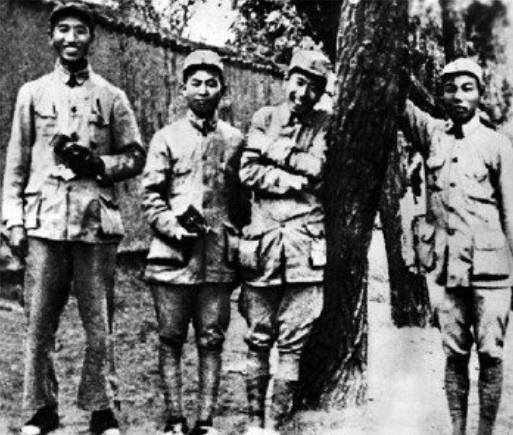In 1955, New China awarded the rank of great general to 10 generals, namely Su Yu, Xu Haidong, Huang Kecheng, Chen Geng, Tan Zheng, Xiao Jinguang, Zhang Yunyi, Luo Ruiqing, Wang Shusheng, and Xu Guangda.

Behind the awardable titles, there are many untold stories!
In the generals' primary list, there are not 10, but as many as 22. Among them, there was Also Song Renqian, who was later awarded the rank of general, many people felt incredible.
Why was Song Renqiang included in the general primary list?
Song Renqian was an old qualifier who joined the party as early as 1926. Speaking of his inner-party seniority, he joined the party before Luo Ronghuan, Liu Bocheng, He Long, Peng Dehuai, and others joined the party.
On the Long March Road, he served as the political commissar of the cadre regiment and partnered with Chen Geng. After arriving in northern Shaanxi, he served as the political commissar of the Red 28th Army and partnered with Liu Zhidan. After Liu Zhidan's death, he became a military commander.
During the War of Resistance Against Japanese Aggression, the Political Department of the Eighth Route Army was sent to southern Hebei to open up a base area and be responsible for the work of the party, government, and army. When the 129th Division sent Chen Zaidao, who was from a military background, to work, Chen Zaidao served as the commander of the military region, and Song Renqiang served as the political commissar and deputy director and director of the Ji'nan Administrative Office, responsible for the army and local work.
During the Liberation War, the Second Column followed Liu Deng into the Dabie Mountains. In 1948, his position was adjusted and he was transferred to the East China Field Army as deputy political commissar.
Many people know that Hua Ye's deputy political commissar is Tan Zhenlin, a senior general, but they don't know that there is also Song Renqian.
Song Renqian was named deputy political commissar of Huaye, not a full-time deputy political commissar, so he basically did not participate in Huaye's military work, and his energy was not in the army, but in the localities.
At that time, after the establishment of the Central Plains Military Region, he served as the political commissar of the Yuwan Soviet Military Region, and Su Yu concurrently served as the commander. The Yuwan Soviet Military Region is the largest second-level military region of the Central Plains Military Region, and it is in the combined zone between the East China Military Region and the Central Plains Military Region. When Chen Su's army formed a strategic pattern of character-shaped characters with Liu Deng and Chen Geng's corps, the two units fought in a lot of coordination, which was convenient for work.
Su Yu concurrently served as the Yuwan Soviet Military Region, and more often than not, it was only a pseudonym, and the specific work was responsible for deputy commander Zhang Guohua.
In 1949, after zhongyuan was reorganized into Erye, Song Renqiao returned to Erye as deputy political commissar. He was also not responsible for the specific work of the field army, but was responsible for logistics and support work.
When Liu Deng's army liberated the southwest, he was transferred to yunnan to take charge of the government.
Judging from Song Renqian's qualifications, he was eligible to be included in the list of candidates for generals. Generals are generally deputies of grand strategic areas or commanders of corps. Song Renqiang served as the deputy of the strategic area, which of course met the requirements.
As for why he was replaced as a general, it has a lot to do with the reduction of the title.
Today's 10 generals all have their own representatives, not simply by seniority, position, and achievements, like Tan Zheng representing political workers, Zhang Yunyi representing the Red 7th Army, Xu Haidong representing the Red 25th Army, Su Yu representing Hua Ye and the southern guerrilla forces, Wang Shusheng representing the Red Fourth Front, and Xu Guangda representing the Red Second Front.
Song Renqian came out of jinggangshan in the central Red Army, and there were not a few people with higher seniority and position than him, and it was reasonable not to be on the list of generals, and people like Xiao Ke and Zhang Zongxun also served as deputy posts in the grand strategic area.